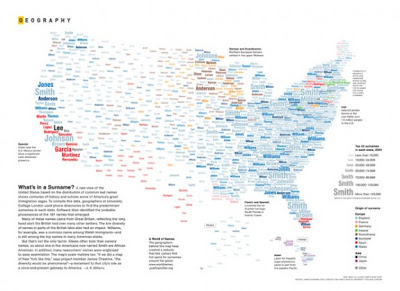So it happened. The U.S. government is shutting down. A lot of people are writing a lot of things about what this means, but I’m awake and restless at 4am, so here’s a quick take on what it means for me personally.
Forget that our pay has been frozen for three years. Forget that I was already furloughed without pay for over a week last year due to sequestration. Forget that I’m among the 20% or so of federal workers who are deemed “non-essential.” We will likely not get paid for however long it takes Congress to figure out how to do their job. And forget that even if they decide to make us whole again (like they did in the 1990s) that they will most likely end up taking some or all of it back to meet sequestration.
These are my sacrifices, and I can deal with them. The thing that upsets me most is that is the damage that this uncertainty has done to my ability to do my job. My job is a very, very small piece of the government puzzle, but I think it is important to share how removing this piece affects the world outside my little cubicle.
First, bear with me as I tell you a little about my job. I manage grants to local governments to improve their water and wastewater infrastructure. The funds for these grants were appropriated by Congress back in the days of pork barrel earmarks. By law, the money must be spent on these projects. My job is to make sure the funds are used responsibly and provide an environmental benefit. At times the work can seem frustratingly administrative and bureaucratic, and I might even wonder occasionally if it is how I want to spend my career. But I recognize that it is important for someone to be there, protecting taxpayers from waste and protecting the environment from harm.
I also spend a portion of my time working directly with water and wastewater utilities to help them manage their energy usage. The benefits from this work are broad and deep. Reducing energy use means more than just saving money and reducing carbon and reducing the environmental ills caused by producing our energy. It means that these utilities will be able to reinvest this money improving their infrastructure or retaining employees without having to raise rates for their customers. Last year alone, four of these utilities saved 5.5 million kilowatt-hours of energy -- this is equivalent to the annual electricity used by about 530 homes. These utilities kept about $500,000 that would have otherwise gone to the power company. We’re currently in a critical period where we are trying to scale up these results and get similar programs going in two other states.
But all of that is on hold for now. Or at least I presume it is. As of this writing, I still have yet to receive official notice that I am on furlough. But the costs of the shutdown are already piling up. Here are a few examples:
- The threat of a shutdown makes any kind of planning pretty meaningless. I spent a lot of time this week canceling meetings, canceling commitments, and dealing with a lot of contingencies. This is time that could have been better spent. If in the next few hours Congress passes a bill and funds the government for the next six weeks, it is likely I will spend more time rescheduling those meetings and commitments. But even then, how meaningful will those meetings be when it is possible this will all happen again in less than two months?
- I was scheduled to attend the WEFTEC conference next week. This is where water professionals gather to share ideas, learn the latest, and find common interests. I cannot stress enough how important it is for EPA to be represented there. It is our ticket out of the “echo chamber” that critics of government are always complaining about. If we are shut down, not only will I miss the boat, but the government will have to pay various fees for my cancelled reservations. Again, if we’re back in business by the end of the week, I’ll be cleared to travel, but all the cheap hotel rooms will probably be gone, and Uncle Sam will be out of more money.
- Much of my time this last week has been spent going to meetings about what I should expect in the event of a lapse in appropriations. Again, this is time that I would have rather spent doing my job.
- Try as I might to be a good patriot and give my all to this job, it was really hard to find the motivation yesterday. When politicians (and the electorate who put them in power) regularly send the message that you're not important enough to pay, it really hurts morale. I'm sure I'm not the only one who feels that way. And it makes it easier to spend a few minutes reading the latest news or commiserating with your coworkers instead of working on the things that really matter. I know that my contribution to this cost is fully within my control, not Congress', and ideally I wouldn't have to list it here; but expecting otherwise is just unrealistic.
Let me know if you wanna hang out.







